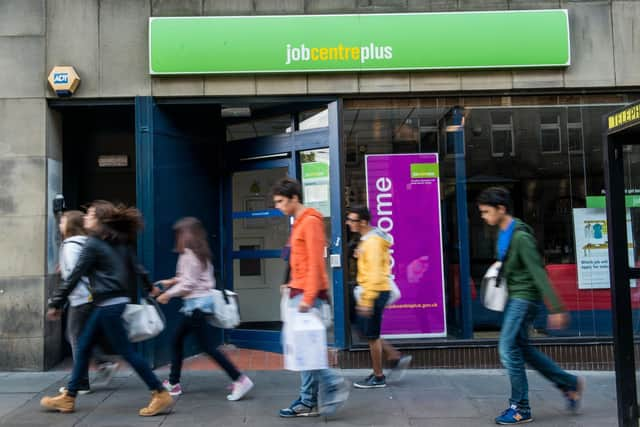Hiring among Scots firms 'loses further momentum' in November amid economic slowdown, says RBS
and live on Freeview channel 276
The NatWest-owned lender has found that both permanent placements and temp billings fell for the second month running, with the former seeing the rate of reduction reach the fastest pace since June 2020, while regarding the latter, outlook concerns weighed on labour market activity according to anecdotal evidence. As has been the case since February 2021, the supply of permanent staff contracted, while a 21st successive monthly fall in temporary candidates was recorded.
Additionally, November saw another monthly increase in the number of permanent vacancies, with the nursing/medical/care sector reporting the quickest rise, while executive and professional plus hotel and catering reported reduced demand. Regarding temporary vacancies, there was a 26th successive monthly rise, with IT and computing registering the quickest upturn.
Advertisement
Hide AdAdvertisement
Hide AdRBS chief economist Sebastian Burnside said the latest survey “indicates that recruitment activity lost further momentum in November amid a slowdown across the economy” and “greater uncertainty around the outlook and candidate shortages have taken a toll on staff hiring across Scotland”.


He added: "Labour scarcity resulted in strong growth in pay, with both starting salaries and hourly wages rising at sharper rates during November. The steeper drop in candidate availability across Scotland, which was often blamed on a generally low unemployment rate, fewer foreign workers, worries over the economic climate and cost of living crisis, is likely to add further upwards pressure on pay in the months ahead, particularly if firms want to attract and secure the skilled workers they need."
Comment Guidelines
National World encourages reader discussion on our stories. User feedback, insights and back-and-forth exchanges add a rich layer of context to reporting. Please review our Community Guidelines before commenting.